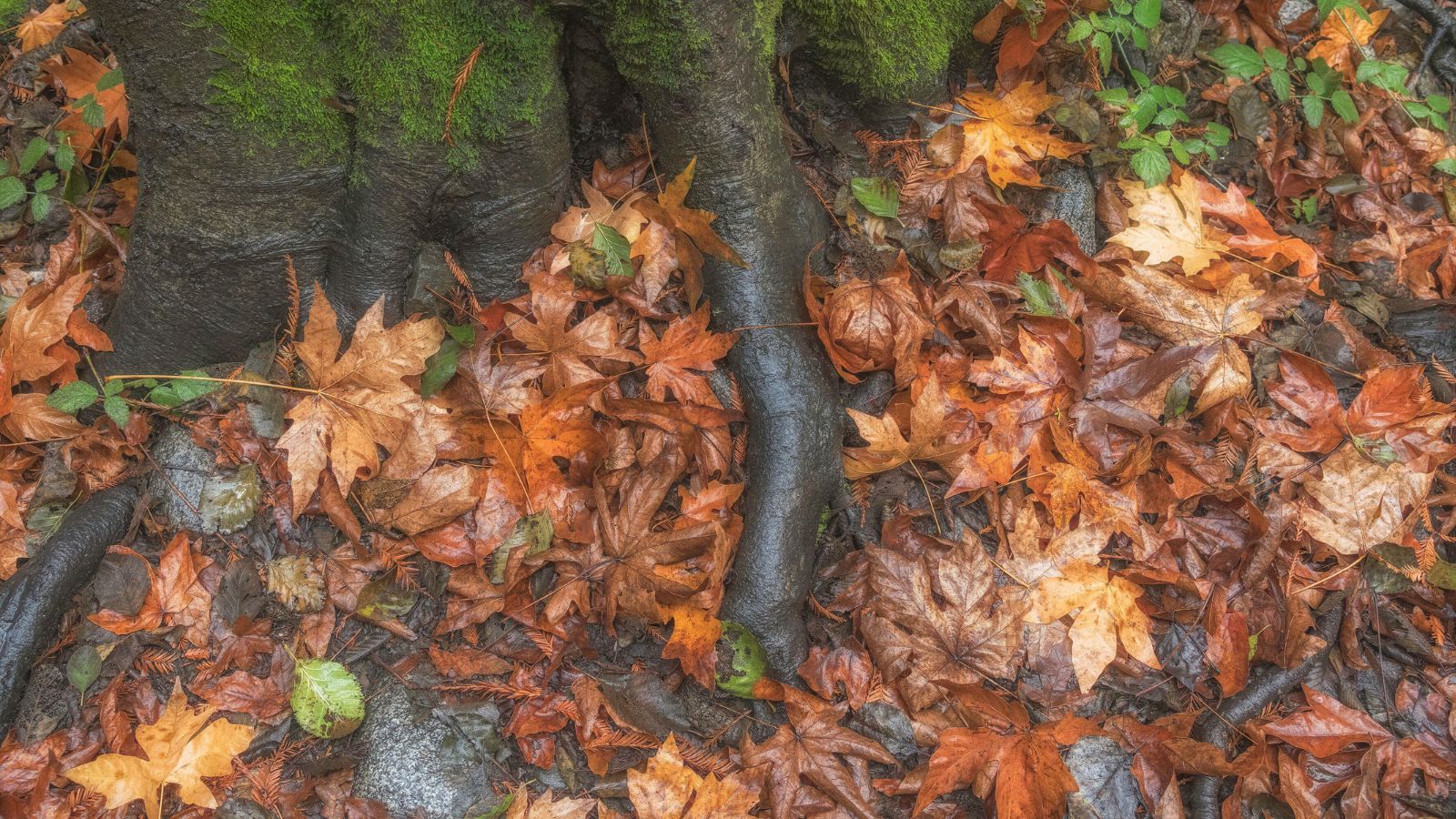7 really good reasons dead leaves should never go in the trash, says garden expert
There are so many ways to use dead leaves for good


Design expertise in your inbox – from inspiring decorating ideas and beautiful celebrity homes to practical gardening advice and shopping round-ups.
You are now subscribed
Your newsletter sign-up was successful
Want to add more newsletters?

Twice a week
Homes&Gardens
The ultimate interior design resource from the world's leading experts - discover inspiring decorating ideas, color scheming know-how, garden inspiration and shopping expertise.

Once a week
In The Loop from Next In Design
Members of the Next in Design Circle will receive In the Loop, our weekly email filled with trade news, names to know and spotlight moments. Together we’re building a brighter design future.

Twice a week
Cucina
Whether you’re passionate about hosting exquisite dinners, experimenting with culinary trends, or perfecting your kitchen's design with timeless elegance and innovative functionality, this newsletter is here to inspire
Ever wondered if your backyard's dead leaves could be put to better use than simply filling a trash can? Well, of course, they can. And the good news is that the ideas below are not only easier to execute than heaving bags of leaves to the curb, they are also good for wildlife, plants and even your lawn.
Because while you may have planted trees for fall color, and love the look of them when they're in leaf, the inevitable clean-up that follows the leaf drop is never something you will rarely enjoy.
We spoke to gardening expert Graham Barrett at Beanbags; this is what he told us to do with dead leaves.
1. They can improve lawn health
'Every week, you should aim to mow over your dead leaves,' says Graham. 'The blades will chop up the leaves and distribute them throughout your lawn as leaf mulch.'
This is especially good if you're looking for a gentler solution than using dish soap to kill moss on your lawn, as mulching will help prevent moss from taking over.
2. They can feed your plants
'Mowing over dead leaves is also beneficial for your plants,' says Graham. 'Over time, the leaf particles will be broken down into nutrients, which help your plants build resilience by developing more robust root systems.'
3. They improve soil health
Want to improve soil health? Compost is a vital way, and you can make your own with leaves and other waste.
Design expertise in your inbox – from inspiring decorating ideas and beautiful celebrity homes to practical gardening advice and shopping round-ups.
'If you have a lot of dead leaves, this is definitely the perfect excuse to create a compost pile. You can make compost with leaves alone, or combine them with other organic materials like grass clippings and kitchen scraps.
'To make compost, simply pile up the leaves in a corner of your backyard and leave them there. Eventually, they will break down into rich soil that can be used as fertilizer for your plants.
'Then let the compost sit all winter, turning the pile occasionally to aerate it. If the compost pile starts to appear dry, you just need to add water from your garden hose, whilst turning with a pitchfork. By the time spring rolls around, you should have some nice compost to mix into your garden soil.'
4. They can benefit flowers and veg
Want to boost your vegetable garden ideas or if you're planning a cut flower garden, dead leaves can be useful.
'If composting sounds like too much work, then you should instead make leaf mould. All you need to do is rake the leaves into a big pile in the corner of your garden. After a year, the leaves should have disintegrated into a dark, sweet-smelling, soil conditioner that is high in calcium and magnesium,' says Graham.
'Combining this with the fact that it retains water easily, it’s exceptional for potting soils as well as vegetable and flower patches.'
5. Dead leaves stop weeds spreading
'If you’re new to gardening, mulch refers to fertilizing items placed around plants to help keep the soil moist and retain moisture during dry spells. In addition, mulch helps suppress weeds by blocking sunlight from reaching their roots,' says Graham.
'Dead leaves make excellent mulch because they are easy to collect, last longer than other types of mulch (such as hay or newspaper), and do not need to be replaced as often as other types of mulch such as pine needles or bark nuggets.
'They do, however, need to be shredded before being used to mulch. You can use your lawn mower to shred them, but this can be difficult if the leaves are wet so they need to be dry first.'
6. You can use them to insulate your shed
'If you have a shed or other small structure in your yard, you can use dead leaves as insulation. Simply pile them up inside the structure and then cover them with a layer of plastic sheeting. The plastic will keep the moisture locked in and also protect the leaves from being blown away by strong winds.'
7. Dead leaves can protect root vegetables
'As well as insulating your shed, did you know that dead leaves can help insulate root vegetables stored in the ground, such as carrots, kale, and leeks?' asks Graham. 'Simply cover them with the dead leaves and they should harvest throughout fall and winter.'
Are dead leaves good for the garden?
'Dead leaves can be a pain to deal with, but they're also an excellent resource for gardeners when used correctly,' says garden expert Graham Barrett. 'The first thing to remember is to never bag dead leaves. The main reason for this is that they will start to rot inside the bag and create an unpleasant smell. Bagging also makes it more difficult to use them as mulch in your garden, so you should always spread them out on your lawn or garden rather than bagging them up.
'It’s also worth knowing the best time to collect leaves; this is when they’ve been raked up into piles and allowed to dry out a bit. Just make sure they're not too wet when you collect them – otherwise, they won't break down very well in the compost pile.
'If you live in an area where leaf-blowers are used on public streets, find out if you can get your blower and use it in your garden instead of bagging up leaves for pickup. You'll save yourself the trouble of bagging and carrying all those bags outside, plus you'll get rid of more leaves at once (and reduce your carbon footprint).'

Lola Houlton is a news writer for Homes & Gardens. She has been writing content for Future PLC for the past six years, in particular Homes & Gardens, Real Homes and GardeningEtc. She writes on a broad range of subjects, including practical household advice, recipe articles, and product reviews, working closely with experts in their fields to cover everything from heating to home organization through to house plants. Lola is a graduate, who completed her degree in Psychology at the University of Sussex. She has also spent some time working at the BBC.